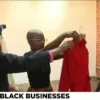In 2018, VC Fintech, hosted by the Venture Center, included one company with ties to Arkansas. The young founder was so taken with the state, he opened a Bentonville office as a satellite location for his California-based startup. In a piece for Arkansas Money & Politics profiling that year’s participants, he happily discussed with me the purpose of his app, which sought to simplify ecommerce and reduce the carbon footprint related to creating new coins. It was an ingenious and user-friendly concept that had wowed investors and landed him in the exclusive accelerator.
Three years later, I reached out to the Venture Center for the entrepreneur’s contact information, hoping to interview him for another story. I was informed the Bentonville office had closed and the founder was deceased, having taken his own life. The finality of the news, applied to the upbeat and intelligent person I’d interviewed previously, was jarring.
Every chapter in American business history has its titans, individuals who built empires, amassed fortunes and drew hundreds, if not thousands of imitators in their wake, hoping to replicate their success. For the past 30 years, the modern tycoons have not come from steel, oil or even Wall Street but from the digital world, and its impact on the marketplace and society has arguably been greater than all of history’s previous business revolutions combined.
Google, Amazon and Facebook all reached stratospheric heights and their founders earned iconic social status, entrepreneurs who changed the world with seemingly nothing more than a good idea and a laptop. These new founders were young, smart and capable of building gargantuan fortunes practically overnight and, to all appearances, singlehandedly. Millions of entrepreneurs adopted the new model, dubbed the startup, which eschewed conventional business thinking and set its sights on recasting society itself. And why not? From the outside, it just looked so easy.
But like all gold rushes and booms, the startup revolution has settled back from its adrenaline-soaked nitrous days into something more in pace with previous generations. As it does so, this new brand of entrepreneurship is starting to show its darker side, where the freedom to do and work as one pleases comes with a double helping of pressure and unyielding demands. A culture where never sleeping at all is a status symbol, admitting feelings of depression and anxiety remain stubbornly stigmatized, and spartan work ethic and tough-it-out endurance bordering on the masochistic is expected, even beatified.
“I think the nature of entrepreneurship is you’re running as fast as you can to accomplish as many things as you can because you know not everything is going to work,” said Susie Reynolds Reese, an author, lecturer and internationally recognized authority on the subject of suicide-centered lived experience. “The hope is, if I can divide my attention and my energy across as many projects and opportunities as possible, at least one of them is going to finally be successful.
“The nature of that mindset is very burnout-prone and can be very difficult for individuals, especially those who are really new to working for themselves or trying to navigate multiple different types of contracts and organizations as collaborators.”
Sadly, an increasing number of outcomes from this new environment have been tragic. Entrepreneur noted last year that 72 percent of founders report having mental health concerns. And while not all of them result in self-harming behaviors, there is no reliable data to indicate how many actually do.
Some sources suggest entrepreneurs are twice as likely to harbor suicidal thoughts than the general population. That’s significant when considering what we do know, that studies show more than 9 percent of people experience suicidal ideation over their lifetimes. In fact, data from 2015 to 2019 gathered by the Centers for Disease Control and Prevention indicated more than four in 10 Americans have had suicidal thoughts over the previous year.
“When you look at the overview of what being an entrepreneur is in the scheme of professionalism, it’s a very disconnected role. It’s very much one person, not a large industry or large organization,” Reynolds Reece said. “They often can’t turn to the person next to them or go knock on the door of an office down the hall and say, ‘I need to talk to you’. Many entrepreneurs are also of the mindset, ‘Who has time to pause and think about wellbeing and mental health when being able to support myself or my family is dependent on my ability to move forward?’”
It’s somewhat ironic to consider how many founders suffer in such isolation given the visible arena in which many operate. The rash of confirmed and suspected suicides in this space has claimed many of the brightest and most ambitious entrepreneurs, from Unfiltered founder Jake Millar and anti-virus software pioneer John McAfee to Zappos founder Tony Hsieh and Reddit’s Aaron Swartz.
One of the reasons these and many other high-profile deaths have been so jarring is that these were the ones who had, to outside appearances, moved past the hard part. They’d landed millions in funding, gained traction for their ventures and were lauded in business magazines and the tech community alike as the next big thing.
And while being well-known, successful and ostensibly happy is no free pass when it comes to mental health, experts note today’s entrepreneurs do not seem to be afforded the same latitude for talking about their demons as the general public.
“Rather than showing vulnerability, business leaders have practiced what social psychiatrists call impression management — also known as ‘fake it till you make it,’” wrote Jessica Bruder for Inc., who went on to cite one CEO on the nature of appearance versus reality.
“[He] explains the phenomenon with his favorite analogy: a man riding a lion. ‘People look at him and think, ‘This guy’s really got it together! He’s brave!’ And the man riding the lion is thinking, “How the hell did I get on a lion, and how do I keep from getting eaten?””
Reynolds Reece said the role of entrepreneur is difficult to untangle from the nature of the person when trying to decipher how one impacts the other. For some people dealing with mental health issues, the pressures of a startup might be the last straw; in other cases, individuals who have never experienced problems before may have them brought on by their unending workday and demands of investors.
“Unfortunately, I lost a really good friend of mine last November, and we had multiple conversations throughout our relationship about the one thing he could do was just show up when needed for work, and then he couldn’t,” Reynolds Reece said. “I think that just destroyed a major part of who he was in some ways, because he had established mental health issues prior to that, and the nature of the industry just chipped away at little pieces.”
Another thing that complicates the scenario, experts say, is the very same attributes, even mental issues, that can ultimately prove harmful are often what make the individual a good entrepreneur, at least in certain situations. As Bruder wrote, “Call it the downside of being up.”
“The same passionate dispositions that drive founders heedlessly toward success can sometimes consume them. Business owners are ‘vulnerable to the dark side of obsession,’ suggest researchers from the Swinburne University of Technology in Melbourne, Australia. They conducted interviews with founders for a study about entrepreneurial passion. The researchers found that many subjects displayed signs of clinical obsession, including strong feelings of distress and anxiety, which have ‘the potential to lead to impaired functioning.’
“In his book ‘The Hypomanic Edge: The Link Between (a Little) Craziness and (a Lot of) Success in America’, [author John] Gartner argues that an often-overlooked temperament — hypomania — may be responsible for some entrepreneurs’ strengths as well as their flaws,” Bruder added.
Such findings only thicken the web in which many founders are caught, struggling with stress, anxiety and worry with few perceived outlets for help. These feelings are often reinforced by the outside world’s inability to recognize their suffering due to entrepreneurs sharing few common characteristics or red flags. Combined, these elements have created a demographic with higher rates of self-harm than other segments of the population, study after study shows.
“I wish I could tell you it was just this simple one-or-the-other thing,” Reynolds Reece said. “Unfortunately, what I’ve learned is that every experience is different and there’s so much nuance and complexity. The nature of this space is very fast-paced; it’s prone for burnout. Some individuals just aren’t able to navigate it. It’s just not built for them.”
The tragic incident involving the former VC Fintech mentee described at the outset did not go unnoticed by the staff of the Venture Center, which began to examine the kinds of support the Little-Rock based organization could provide to the entrepreneurs they worked with, in addition to the business mentoring and networking that had existed all along.
Mimi Van Pedro, chief strategy officer, said as a former founder herself, she understands intimately how pressures can build up and push some people to the tipping point.
“The most stress that I had running a startup company was the employees, making sure that they make the mortgage payment or their tuition for their kids,” she said. “That was what really weighed heavily on my day-to-day, which gave me the motivation and the goal of every day growing the company. It was all about making payroll, making payroll, making payroll. That was a big stress level for me.”
Drawing from her own experience, Van Pedro spearheaded an effort at the Venture Center called Women Achieve, which helped female founders cope with the added pressures they sometimes face as both breadwinner and caregiver.
“The Venture Center has always had mentorship programs, but what I know is that women have different needs,” she said. “They are taking care of their family, taking care of their kids, taking care of aging parents. They want to have a mentor who understands them and their struggles as an entrepreneur.
“Another thing that I wanted to make sure of is the diversity part of it. Not only is it about women talking to other women, but a Hispanic woman talking to a Hispanic entrepreneur, an Asian woman talking to an Asian entrepreneur, an African American woman talking to an African American entrepreneur.”
Such an approach is more than just political correctness. Van Pedro said it’s an important way for people of similar backgrounds to get at the real meat of issues, based on a shared cultural experience as well as understanding the same gender expectations and challenges.
“I have personally and professionally benefitted from having women mentors in my life,” she said. “I come from a culture where you’re told you cannot fail, you cannot fail. Coming from that background, talking about things like mental health is often taken as a sign of weakness. So, seeking an outlet becomes a trust issue.
“Luckily, I have some great mentors that I can disclose pretty much everything to about what I’m going through both practically and emotionally, somebody I can just sit down with and go, ‘Look I’ve just had enough.’ And they just kind of pat me on the back and then the next day they call and say, ‘OK. Get back up. Let’s talk about how you’re gonna do this today.’”
Meanwhile, the grind continues for founders. The Small Business Administration reports there are some 3.2 million small businesses in the U.S. Of these, SmallBusinessTrends.com reported only two in five startups were profitable while a third lose money. Faillory.com reports 90 percent of startups fail, 10 percent in the first year and 70 percent in years two through five. Fewer than two in 10 first-time founders succeed, per Exploding Topics.com, with the most common reason for going under being under-capitalization.
Life as a founder is a far more brutal existence than most people realize. Reynolds Reece’s advice to those who chase the dream anyway is simple, but not easy, for meeting the struggles entrepreneurs face, quite often as a literal matter of life and death.
“Whatever experience you’re having, recognize that it is not wrong,” she said. “There is no reason to feel shame. There is no reason or need to hide it. If you’re having to hide any part of yourself or feel shame about who you are or what you’re experiencing, you are surrounded by the wrong people, quite frankly, so find new people. That can be overwhelming because we are so tied into the connections that we have. But re-evaluate, find small spaces where you can bring your full self to the table and not have to keep your mouth shut or not wear the thing, whatever it may be.
“While realizing your feelings are valid, you also have to take account of what those feelings are, and if there are things that you can do to make it a little easier or a little better. Hope is not an answer, hope is an ideal. We often really push that word around, but I can’t hold onto hope. I can’t touch it. It is not something that is tangible, actionable or offers solutions, so find something that is. Find help in another person. Find help in yourself.
“Honestly, we have got to really start to accept that this is not the way we were supposed to be functioning as human beings and mental health care is a necessity. The world is very weird. Let’s just recognize that.”
If you or someone you know is struggling, the 988 Suicide & Crisis Lifeline (formerly known as the National Suicide Prevention Lifeline) provides free and confidential emotional support to people in suicidal crisis or emotional distress 24 hours a day, seven days a week, across the United States. Simply dial 988 or visit 988Lifeline.org to learn more.
READ ALSO: Policymakers, Industry Titans Converge on VenCent Fintech Summit




